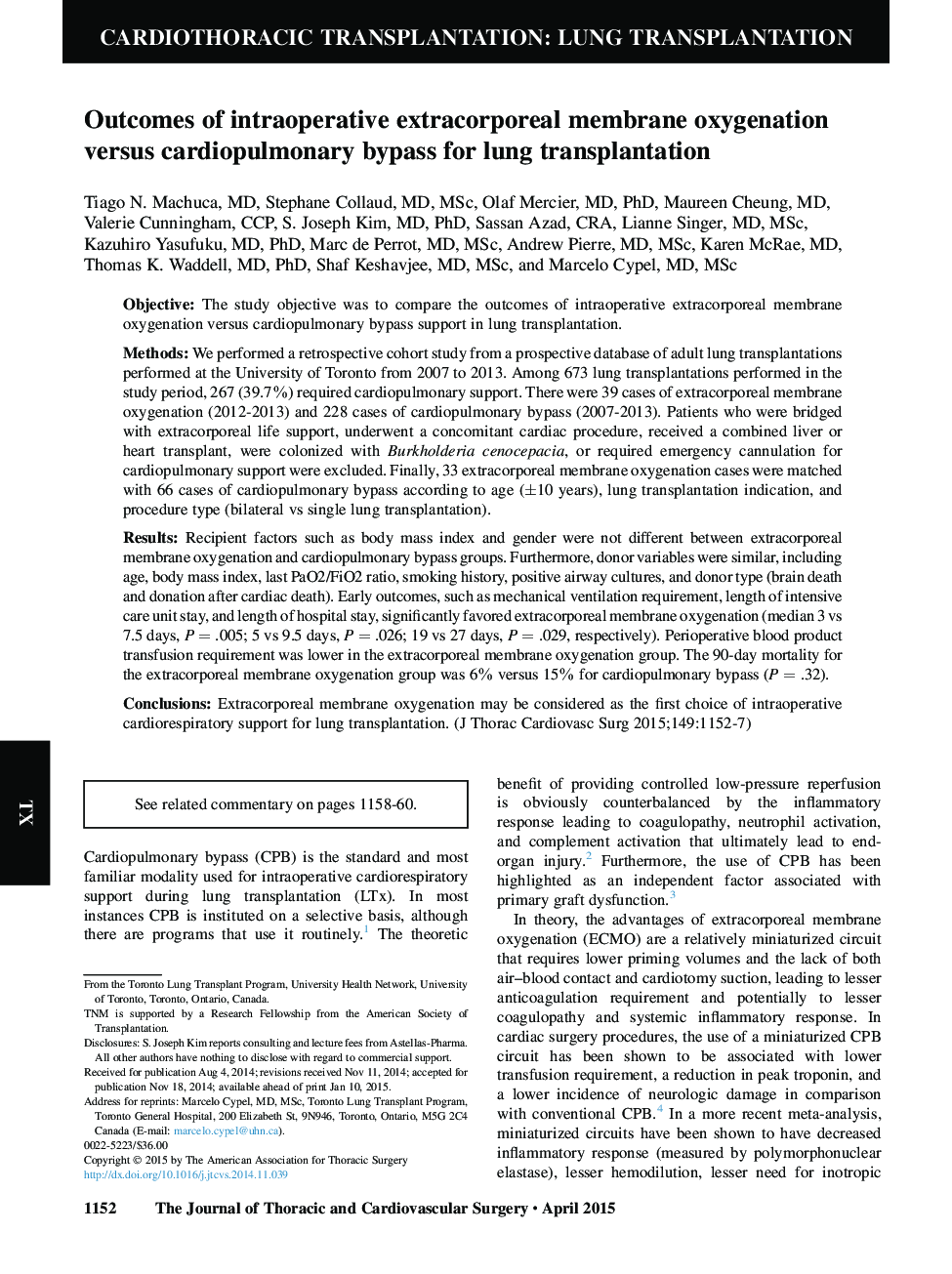| Article ID | Journal | Published Year | Pages | File Type |
|---|---|---|---|---|
| 2979960 | The Journal of Thoracic and Cardiovascular Surgery | 2015 | 6 Pages |
ObjectiveThe study objective was to compare the outcomes of intraoperative extracorporeal membrane oxygenation versus cardiopulmonary bypass support in lung transplantation.MethodsWe performed a retrospective cohort study from a prospective database of adult lung transplantations performed at the University of Toronto from 2007 to 2013. Among 673 lung transplantations performed in the study period, 267 (39.7%) required cardiopulmonary support. There were 39 cases of extracorporeal membrane oxygenation (2012-2013) and 228 cases of cardiopulmonary bypass (2007-2013). Patients who were bridged with extracorporeal life support, underwent a concomitant cardiac procedure, received a combined liver or heart transplant, were colonized with Burkholderia cenocepacia, or required emergency cannulation for cardiopulmonary support were excluded. Finally, 33 extracorporeal membrane oxygenation cases were matched with 66 cases of cardiopulmonary bypass according to age (±10 years), lung transplantation indication, and procedure type (bilateral vs single lung transplantation).ResultsRecipient factors such as body mass index and gender were not different between extracorporeal membrane oxygenation and cardiopulmonary bypass groups. Furthermore, donor variables were similar, including age, body mass index, last PaO2/FiO2 ratio, smoking history, positive airway cultures, and donor type (brain death and donation after cardiac death). Early outcomes, such as mechanical ventilation requirement, length of intensive care unit stay, and length of hospital stay, significantly favored extracorporeal membrane oxygenation (median 3 vs 7.5 days, P = .005; 5 vs 9.5 days, P = .026; 19 vs 27 days, P = .029, respectively). Perioperative blood product transfusion requirement was lower in the extracorporeal membrane oxygenation group. The 90-day mortality for the extracorporeal membrane oxygenation group was 6% versus 15% for cardiopulmonary bypass (P = .32).ConclusionsExtracorporeal membrane oxygenation may be considered as the first choice of intraoperative cardiorespiratory support for lung transplantation.
